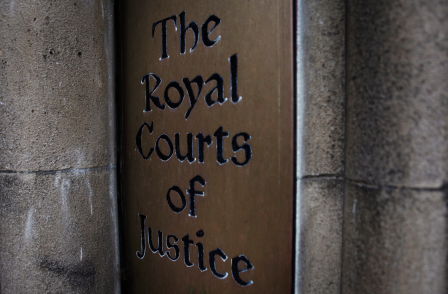
Fake news is older than the invention of the printing press, but few would argue with the proposition that it has become more prevalent and should be stopped.
But there are three key difficulties with this. The first is defining fake news; the second is the age-old balance between controlling misinformation and the principle of freedom of expression. The third is if we are to police fake news who should do it and how?
Defining fake news may seem straightforward – most would see it as news that contains facts which are wrong or inaccurate. But accusations that news is “fake” are often made in respect of opinions or versions of events that do not fit with the accuser’s own point of view. As any libel lawyer knows, there is often a very thin line between what is fact and what is opinion. Tying down a workable definition is the first hurdle.
As for the legal position, in the eyes of the law while freedom of expression is a fundamental right, it cannot be an absolute one. There are limited controls on freedom of expression such as those which relate to contempt, racist (and religious) hate speech, harassment, terrorism related material, classified material and obscenity.
Libel claims are probably the best known restriction. They can be brought if a publication has caused or is likely to cause serious harm to the reputation of a specific individual or company.
However, in the current political climate, “fake news” allegations often relate to economic arguments or to specific events rather than to the reputation of specific individuals or companies. In those circumstances, libel laws do not help.
The Editor’s Code of Practice enforced by IPSO does place restrictions on inaccurate reporting and IPSO has made a number of decisions criticising publications for inaccurate reporting which have been dissuasive. Similarly, Ofcom’s broadcasting code requires accuracy and impartial reporting.
However, in general (and many would say for good reason) the law does not prevent the dissemination of misleading or incorrect information.
Many observers have pointed the finger of blame at social media for the explosion of fake news. Whilst it is true that the expanded range of news sources brings greater opportunity for the dissemination of news, both fake and otherwise, there are great challenges in controlling fake news on social media.
Social media services like Twitter and Facebook host, rather than curate content.
Steps are being taken by some social media channels to deal with fake news. Facebook has said it will re-prioritise posts which do not seem to be authentic by pushing them down a user’s feed. However, asking social media services to prevent the dissemination of fake news entirely may involve them making judgments which perhaps neither we nor they would want them to make.
Another problem with policing fake news is that it is generally disseminated beyond national boundaries. Although steps can be taken to block material in a particular jurisdiction, leakage often occurs and it is unlikely that many would be in favour of a regulatory regime where there were significant restrictions on cross-border provision of information, fake or otherwise.
If the law were to impose restrictions on fake news, it would most likely be at least partly ineffective without some form of cross-border co-operation. Achieving that is likely to take years.
In a nutshell, there is no quick fix. With time, as we have seen with IPSO, we may see industry self-regulation for digital and social media services or cross-border co-operation to tackle the problem. In the meantime, we are going to have to do things the old-fashioned way and rely on our own judgement to assess what is real and what is fake.
Carolyn Pepper is a lawyer with Reed Smith
Email pged@pressgazette.co.uk to point out mistakes, provide story tips or send in a letter for publication on our "Letters Page" blog
